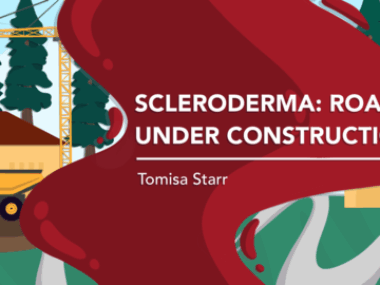UK Rare Diseases Framework Opens to Improve Diagnosis, Access to Care
Written by |

U.K. Rare Diseases Framework, a government-led approach to raising national awareness of rare disorders, accelerating diagnoses, and improving patient care and treatment, is now in practice.
This framework, signed by all four countries take make up the U.K. — England, Scotland, Wales and Northern Ireland — builds on the success of a previous and identical plan to better assist the more than 3.5 million people living in the U.K. with a rare disorder.
Patients and their families participated in considerations that went into the plan’s design.
“Today’s strategy sets out a welcome ambition for how people with rare diseases can get a fast diagnosis and access to treatments they desperately need,” Haseeb Ahmad, president of the Association of the British Pharmaceutical Industry (ABPI), said in a press release.
“We welcome the publication of this Framework and look forward to working with the four nations of the UK to develop action plans to deliver its aims. A framework for rare disease policy is necessary now more than ever,” said Jayne Spink, CEO of Genetic Alliance UK, an umbrella organization with more than 200 patient aid groups as members.
More than 7,000 types of rare diseases are known and described, with new ones expected to be identified as research advances.
Cystic fibrosis, Huntington’s disease, Ehlers-Danlos syndrome, and scleroderma are, according to the U.K. government, among the best known and understood rare disorders. Many others are poorly understood or not well documented, making it difficult for general care practitioners to recognize them and treat patients accordingly.
To counter these challenges, the U.K. Rare Diseases Framework sets four key priorities. These include the establishment of measures to facilitate a faster diagnosis of rare diseases, raise awareness of them among healthcare professionals, improve the coordination of patient care, and make access to specialized care and treatments easier.
“People with rare disease deserve to get the best possible access to care and treatment. Many spend years trying to discover what is wrong, so it’s essential we ensure we take every step to accelerate diagnosis and our brilliant health and social care workforce have a thorough understanding of those living with rare diseases,” said Matt Hancock, health and social care secretary.
Hancock added that the new framework was “developed in close collaboration with people with a lived experience,” and makes use of “the UK’s exceptional strength in life sciences, our genomic capability, and of course the huge benefit of having the NHS [National Health System],” with the goal of shaping “our policies on rare diseases in the years to come.”
Views and experiences of those with rare disorders were gathered as part of the National Conversation on Rare Diseases, a large survey that aimed to identify the major challenges people with these diseases face.
More than 6,000 responses from more than 5,000 people (patients, family members, and patient organizations) took part in survey, spotting as top challenges a lack of awareness toward rare conditions and difficulties in patient access to specialized care.
“I want the experiences of those living with a rare disease to shape the priorities of government to make sure our policies work for them. We can harness the potential of new technologies, including genomics, to support earlier detection and faster diagnosis of disease, tailor and target treatments,” said Lord Bethell, minister of innovation for the U.K.’s department of health.
“With such a vast range of rare diseases out there, it is hugely important the rare disease community was at the centre of designing the UK Rare Disease Framework,” Bethell added.





